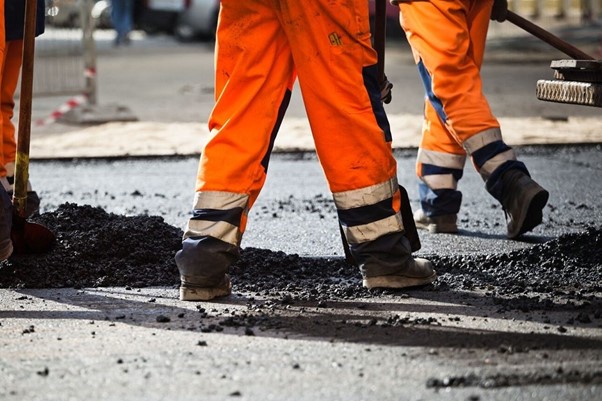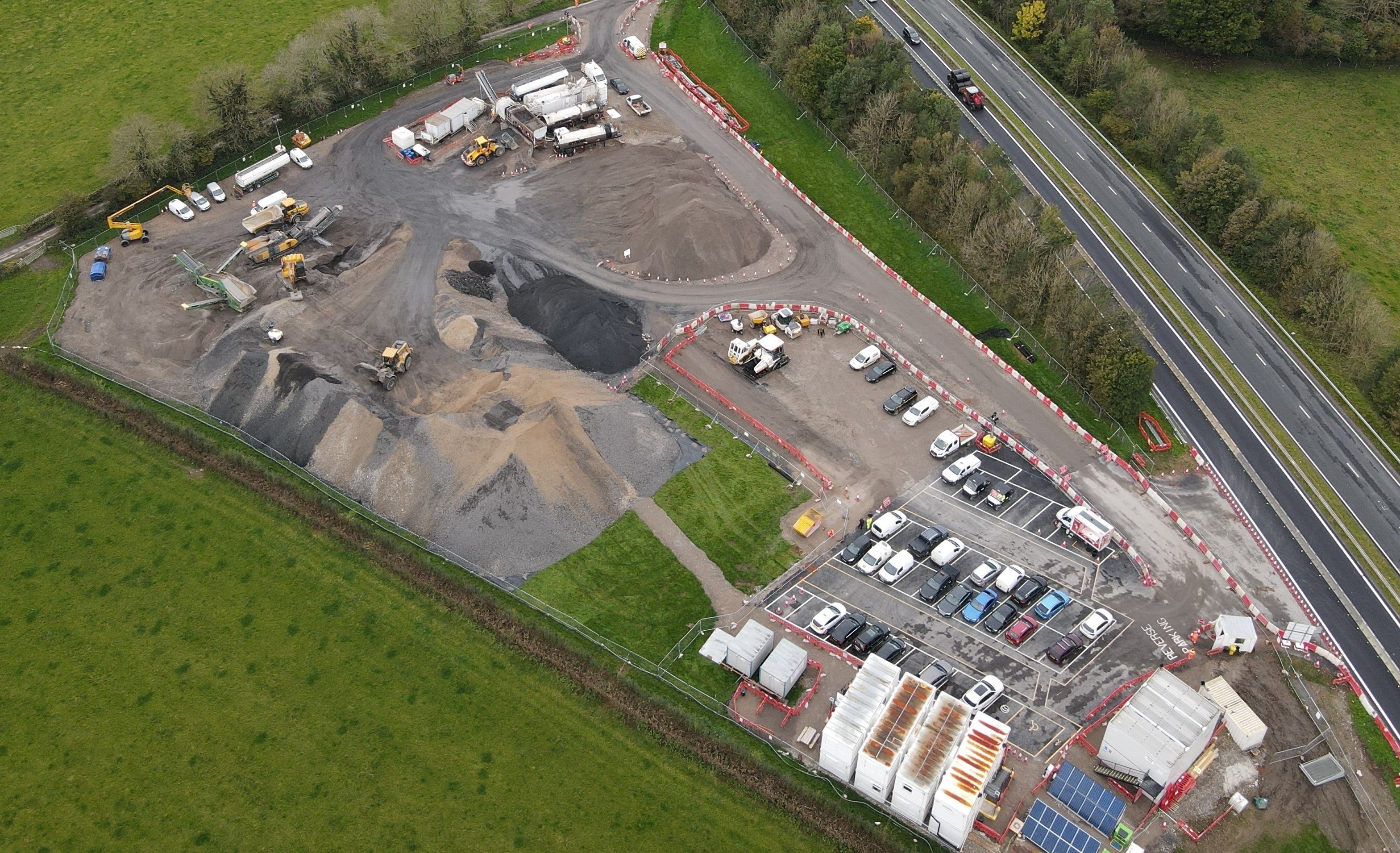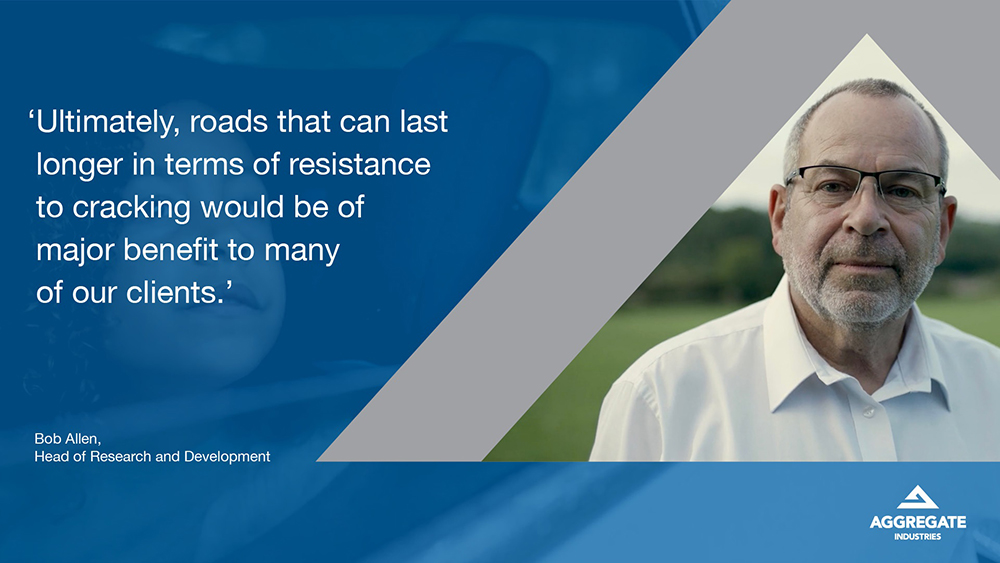
A trial on the England’s A64 trunk road has delivered the UK’s lowest carbon resurfacing scheme on the strategic road network without using carbon offsetting.
The trial - the first of its kind on the strategic network, noted Tarmac - was delivered on a 2.5km section of the A64 eastbound carriageway at junction 44 near the town of Bramham in North Yorkshire county.
During seven days, the team - HW Martin, Premier Roadmarkings, Kier and Mway Comms - combined an extensive range of low-carbon materials for paving technology and plant equipment to deliver the carbon savings.
Overall, 41.3% of the project’s carbon reduction total was delivered using low carbon raw materials, 14.7% from the transport of materials and the paving process, including the use of electric plant equipment and 44% from employing sustainable manufacturing techniques.
A warm mix asphalt was used together with a pioneering CarbonSink bio-component binder from Shell, which locks carbon into the road to prevent it being released into the atmosphere. The lower layer of the pavement used 40% recycled asphalt planings (RAP) with a further 20% in the surface course to help reduce the need for primary materials.
According to Shell, its bio-component binder, Shell Bitumen CarbonSink, locks carbon into asphalt and bitumen, turning the road into a technical carbon sink. As the asphalt road is recyclable, most of this carbon will not re-enter the atmosphere, even at the end of its life.
Also on the A64 project, a number of zero-emissions plant vehicles and prototypes were used. This included electric and hybrid road rollers and an electric bond coat sprayer, minimising noise and further reducing tailpipe emissions as well as CO₂. Tarmac’s Cross Green asphalt plant in the city of Leeds, which manufactured many of the materials used on the project, was powered by a combination of biofuel and clean electricity.
Eliminating joins reduces water infiltration into the road surface. This results in a more durable road that is expected to last more than 20% longer than those constructed with conventional surfacing methods. It also requires less maintenance, reducing operational carbon in the longer term. In addition, the increased smoothness of the surface improves vehicle ride quality which reduces fuel consumption leading to fewer associated emissions and particulates from vehicles.
To assist with the ultimate aim of achieving net-zero pavements, a small 150m-long section used all of the above technologies. However, it was with a standard penetration grade binder and a small percentage of a negative carbon aggregate.
“This trial sets a blueprint for low carbon delivery on the strategic road network and the exacting requirements of decarbonising every element of highways maintenance,” said Brian Kent, national technical director at Tarmac. “It demonstrates how shorter, more focused use of road networks can improve efficiency, boost productivity and minimise nighttime closures, reducing disruption for road users.”
Tarmac said that the sharing of lessons learned and expertise from the project will help the supply chain collectively adopt new approaches and tackle the sector-wide challenge of decarbonisation. “We hope this project will pave the way for industry-wide changes, resulting in significant carbon savings and improved road surfaces for drivers,” said Angela Halliwell, head of carbon and environmental sustainability strategy and planning with National Highways.
“National Highways has ambitious plans, backed by science, to decarbonise the road network. We aim to achieve net-zero for our corporate emissions by 2030, for our maintenance and construction activities by 2040 and for our whole network by 2050.”
Tarmac - owned by building materials solutions company CRH - has an ambitious target to reduce CO₂ emissions by 30% by 2030 and reach net zero before 2050. It has worked on some of the UK’s biggest construction and infrastructure projects – high-speed railway HS2, the Sainsbury Laboratory, Wembley Stadium, Heathrow Terminal 5, Blackpool Sea Defences, The Shard and London 2012.
Tarmac directly employs around 6,000 people and solutions span aggregates, asphalt, cement, lime, readymix concrete, offsite manufacture, road contracting, highways maintenance and infrastructure services, building products and recycling services. Meanwhile, CRH employs 78,500 people at nearly 4,400 operating locations in 28 countries.












